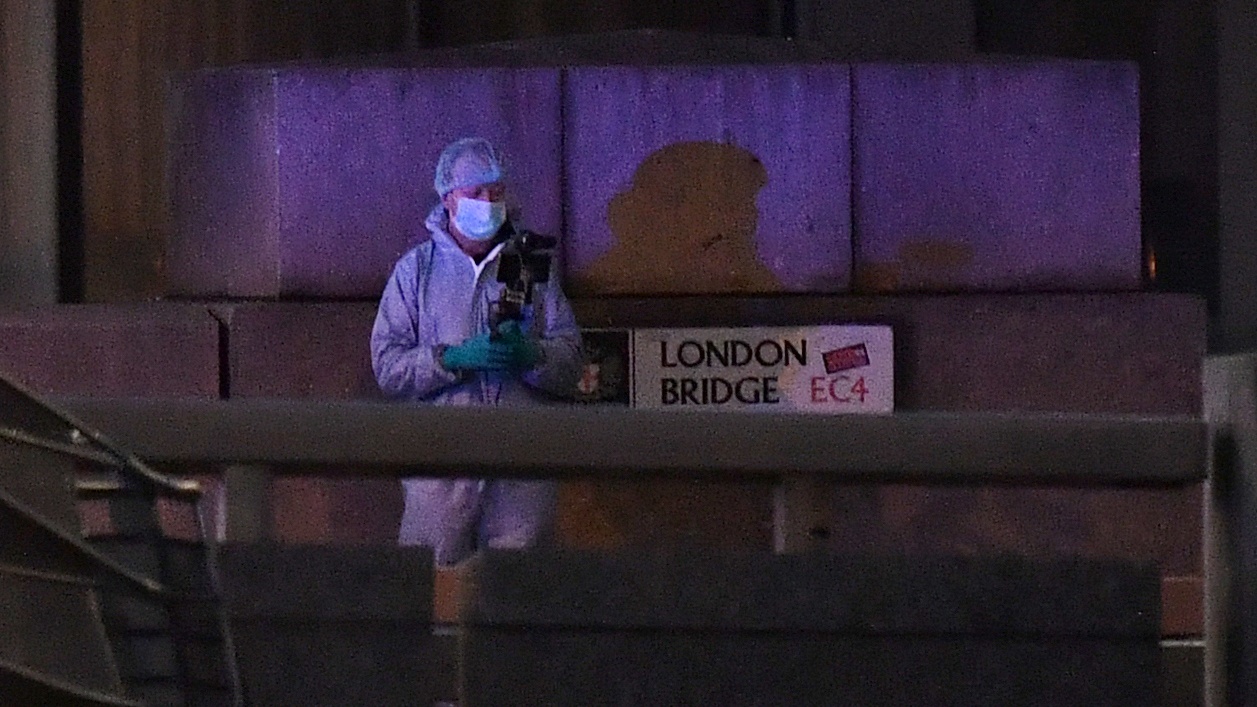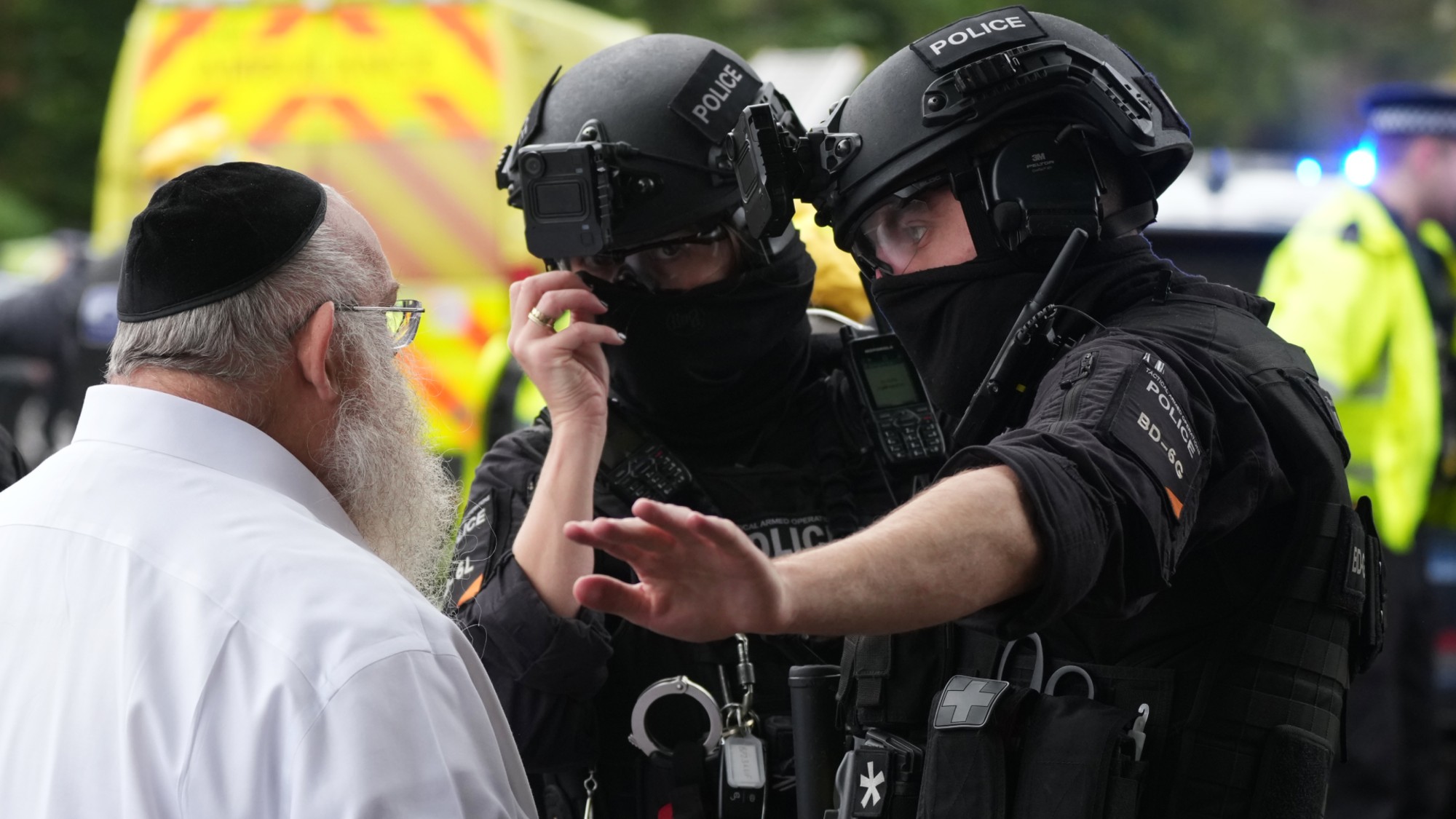Terror suspects to face ‘indefinite controls’ under new UK laws
Rights groups criticise government plan to put indefinite curbs on alleged offenders’ movements

A free daily email with the biggest news stories of the day – and the best features from TheWeek.com
You are now subscribed
Your newsletter sign-up was successful
Restrictions on the movements of non-convicted terror suspects may be extended indefinitely under new government legislation.
The Counter Terrorism and Sentencing Bill would lower the standard of proof needed to impose Terrorism Prevention and Investigation Measures (TPIMs) and remove the current two-year cap on their use.
The “controversial and resource-heavy measures” are usually imposed based on secret intelligence and are aimed at “controlling the risk presented by terrorism suspects at large” when criminal prosecution or deportation are not options, says The Guardian.
The Week
Escape your echo chamber. Get the facts behind the news, plus analysis from multiple perspectives.

Sign up for The Week's Free Newsletters
From our morning news briefing to a weekly Good News Newsletter, get the best of The Week delivered directly to your inbox.
From our morning news briefing to a weekly Good News Newsletter, get the best of The Week delivered directly to your inbox.
Under the new proposals, suspects will also be forced to register all electronic devices in their households, “not just their own, and could be subject to lie detection and drug tests”, adds the BBC.
The expansion of the orders is part of the government’s response to two terrorist attacks in London in the past 12 months, according to Home Secretary Priti Patel.
Presenting the Bill in Parliament on Tuesday, she said: “The shocking attacks at Fishmongers’ Hall and Streatham revealed serious flaws in the way terrorist offenders are dealt with. “We promised to act and today we are delivering on that promise…we will do whatever it takes to stop them.”
–––––––––––––––––––––––––––––––For a round-up of the most important stories from around the world - and a concise, refreshing and balanced take on the week’s news agenda - try The Week magazine. Start your trial subscription today –––––––––––––––––––––––––––––––
A free daily email with the biggest news stories of the day – and the best features from TheWeek.com
But campaigners including Amnesty International have warned that TPIMs already allow authorities to restrict suspects’ freedoms without criminal trials, on grounds below the usual threshold for prosecution.
“The suggestion that existing TPIMs measures are to be made even more draconian would be a serious setback for the proper administration of justice in this country,” said Amnesty legal expert Rachel Logan.
Those concerns were echoed by Rosalind Comyn of human rights group Liberty, who told Sky News that the new legislation “threatens all of our civil liberties”.
“This legislation not only authorises people being locked up indefinitely, it also poses a threat to fundamental pillars of our justice system,” she said. “A fundamental principle of justice - the presumption of innocence - hangs in the balance.”
-
 Political cartoons for February 12
Political cartoons for February 12Cartoons Thursday's political cartoons include a Pam Bondi performance, Ghislaine Maxwell on tour, and ICE detention facilities
-
 Arcadia: Tom Stoppard’s ‘masterpiece’ makes a ‘triumphant’ return
Arcadia: Tom Stoppard’s ‘masterpiece’ makes a ‘triumphant’ returnThe Week Recommends Carrie Cracknell’s revival at the Old Vic ‘grips like a thriller’
-
 My Father’s Shadow: a ‘magically nimble’ film
My Father’s Shadow: a ‘magically nimble’ filmThe Week Recommends Akinola Davies Jr’s touching and ‘tender’ tale of two brothers in 1990s Nigeria
-
 Why have homicide rates reportedly plummeted in the last year?
Why have homicide rates reportedly plummeted in the last year?Today’s Big Question There could be more to the story than politics
-
 How the ‘British FBI’ will work
How the ‘British FBI’ will workThe Explainer New National Police Service to focus on fighting terrorism, fraud and organised crime, freeing up local forces to tackle everyday offences
-
 How the Bondi massacre unfolded
How the Bondi massacre unfoldedIn Depth Deadly terrorist attack during Hanukkah celebration in Sydney prompts review of Australia’s gun control laws and reckoning over global rise in antisemitism
-
 Who is fuelling the flames of antisemitism in Australia?
Who is fuelling the flames of antisemitism in Australia?Today’s Big Question Deadly Bondi Beach attack the result of ‘permissive environment’ where warning signs were ‘too often left unchecked’
-
 ‘Stakeknife’: MI5’s man inside the IRA
‘Stakeknife’: MI5’s man inside the IRAThe Explainer Freddie Scappaticci, implicated in 14 murders and 15 abductions during the Troubles, ‘probably cost more lives than he saved’, investigation claims
-
 Ten years after Bataclan: how has France changed?
Ten years after Bataclan: how has France changed?Today's Big Question ‘Act of war’ by Islamist terrorists was a ‘shockingly direct challenge’ to Western morality
-
 Arsonist who attacked Shapiro gets 25-50 years
Arsonist who attacked Shapiro gets 25-50 yearsSpeed Read Cody Balmer broke into the Pennsylvania governor’s mansion and tried to burn it down
-
 Manchester synagogue attack: what do we know?
Manchester synagogue attack: what do we know?Today’s Big Question Two dead after car and stabbing attack on holiest day in Jewish year